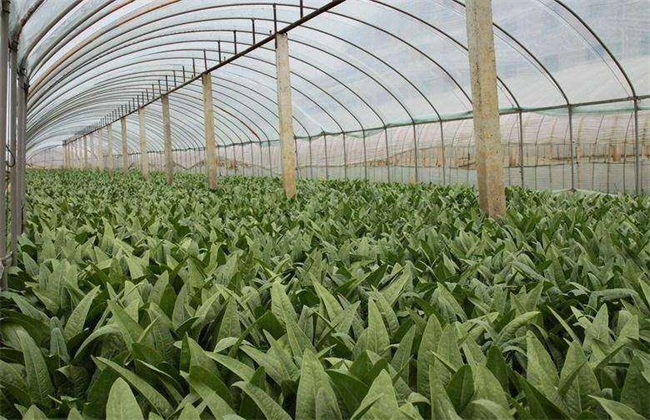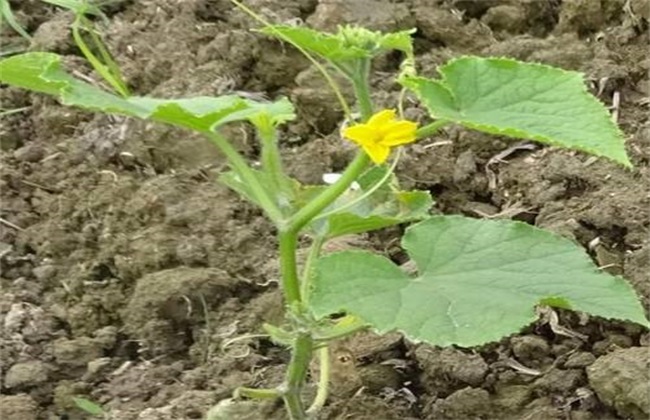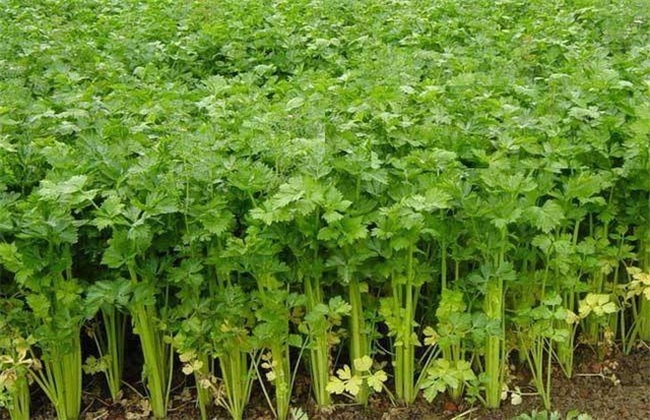Pollution-free cultivation techniques of lettuce
Lettuce is a very common vegetable in our daily life. Its leaves and roots are edible and are welcomed by many people. So now the planting area of lettuce is relatively large, but when lettuce is planted, it will often encounter some diseases and insect pests, resulting in a decline in production. Therefore, the pollution-free cultivation technology of lettuce is very important, so the following editor brings you the pollution-free cultivation technology of lettuce, let's have a look!

1. Soil preparation
If lettuce wants to achieve the purpose of pollution-free cultivation, then we must first do a good job in the selection of soil. The soil with soft soil, normal drainage and irrigation, rich humus and good water and fertilizer conservation should be the main soil. After selecting the soil, do a good job of soil preparation, and turn the soil deep into the sun. And should apply sufficient base fertilizer, mainly farm manure, about 2000kg per mu. Bask in the sun for a week or so and then prepare the ground, and then open the soil moisture with a specification of about 185 centimeters. If it is planted in the current season, it should be based on flat soil moisture, otherwise it should be high soil moisture.
2. Sowing and planting
After preparing the soil, we also need to disinfect the soil and apply Lexben and other chemicals to prevent lettuce from being affected by pests. After disinfection, sow seeds properly, and the sowing method is mainly sowing, so as to control the sowing amount. Usually the sowing rate per mu is about 30 grams, which should not be too much, otherwise it will easily lead to too dense growth. After sowing, cover a layer of fine soil, the soil can not pass the seed, and then cover the soil with a layer of straw. Then when the seedlings grow to about 8 cm, transplant is not suitable for the dilated seedlings to avoid the phenomenon of early bolting.
3. Field management
After transplanting lettuce seedlings, we should pay attention to watering them immediately to avoid death due to lack of water. Then, after the seedlings survived, hydrogen ammonia and calcium were properly applied to promote the growth of seedlings. After that, it is necessary to control the amount of fertilizer and water and do a good job of ploughing. After entering the rosette stage, it is necessary to water and fertilize more. Fertilizer is mainly urea, about 12kg per mu, supplemented by potassium sulfate, about 5kg per mu, and then the soil should be kept dry and wet. Finally, when the ridge was closed on the leaf surface and the stem began to expand, the last topdressing was carried out, mainly compound fertilizer.
4. Pest control
Finally, we should do a good job in the prevention and control of diseases and insect pests of lettuce. Lettuce is most vulnerable to downy mildew. Especially in the environment of high temperature and high humidity, the disease is most likely to occur. Therefore, we should do a good job of prevention and control by properly spraying metalaxyl mancozeb and other chemicals about 3 weeks after planting. But also pay attention to the prevention and control of Sclerotinia sclerotiorum, leaf spot and thrips. We should give priority to prevention, strengthen management, do a good job in ploughing, and control the temperature and humidity in the field. Avoid temperature and humidity discomfort to create conditions for the disease.
The above is a brief introduction to the pollution-free cultivation techniques of lettuce. Pollution-free cultivation can effectively improve the quality and yield of lettuce, but also expand the benefits of planting, so we can try more. That's all for today's introduction. This article is for reference only. I hope it can be helpful to all of you.
Related
- Where is it suitable to grow horseradish in China? it is expected to see the middle altitude horseradish in Alishan.
- How to prevent tomato virus disease reasonably? (Control methods included)
- Many people like to plant towel gourd on the balcony. What are the main points of this method and management?
- What crops can chili peppers be mixed with?
- Fertilization techniques and matters needing attention in Tomato
- What are the grafting techniques for peach seedlings in spring?
- Harm and control methods of root swelling disease of Chinese cabbage
- What are the pests of sweet potatoes? How to prevent and cure it?
- Symptoms, causes and Control methods of navel Rot in Tomato
- The cause of "Cucumber rotten bibcock" in Farmers' planting Cucumber and its Control Plan



